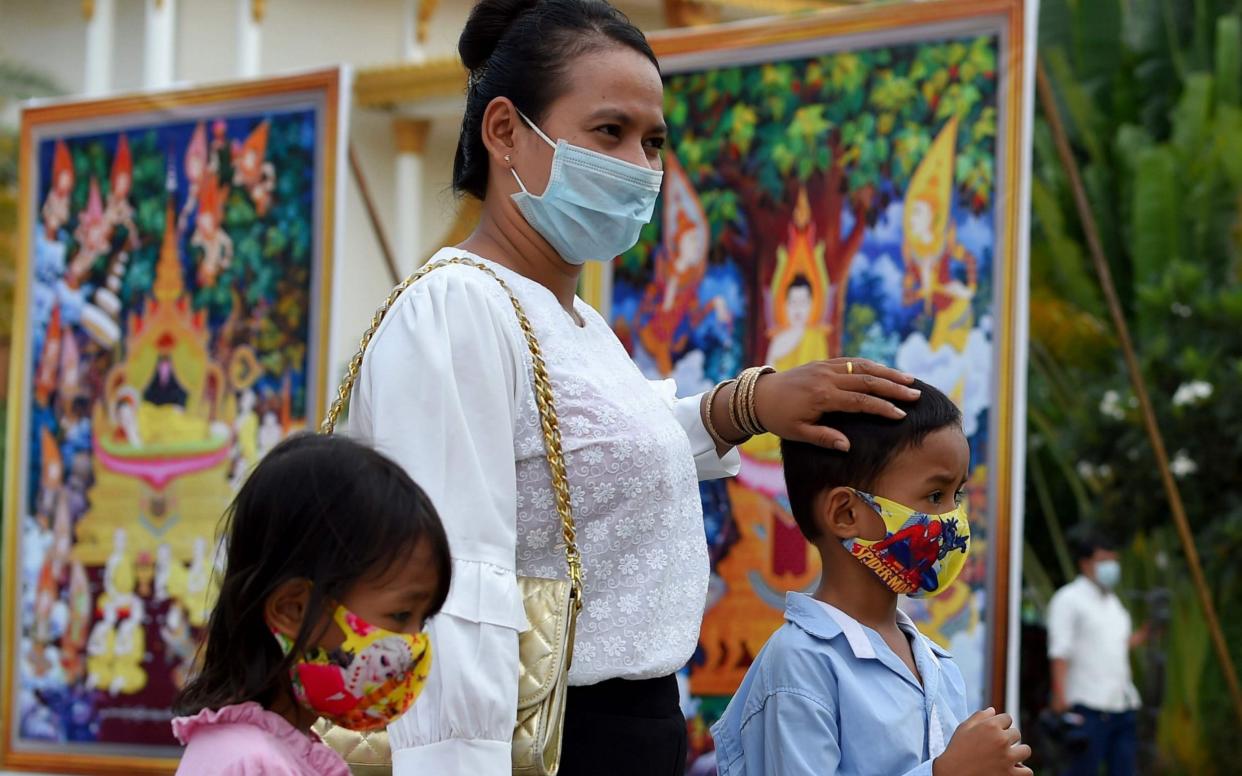Covid-19 pandemic could increase child mortality in Cambodia by 35 per cent, report warns


Child and maternal mortality in Cambodia could increase by between 35 and 50 per cent over the next year as the Covid-19 pandemic threatens to disrupt the provision of essential services, according to a new report.
The findings from Global Financing Facility come as charities warn that the pandemic could reverse many of the gains made over the past decade in child and maternal survival, with Save the Children warning that the health and lives of “millions” of children are on the line.
In addition to the deaths directly attributed to Covid-19, the report warns that the pandemic poses a significant risk of “indirect” morbidity and mortality from preventable and treatable diseases if the provision of essential health services is disrupted.
Using mathematical modelling, the report indicates that service disruptions in Cambodia could leave 313,900 children without oral antibiotics for pneumonia, 441,200 children without DPT vaccinations, 77,600 women without access to facility-based services, and 559,900 fewer women receiving family planning services.
These numbers could arise as medical personnel normally providing essential health services could be diverted to respond to Covid-19, the report says, and global supply chains for essential supplies are likely to be disrupted, diverted and delayed.
The findings come as many family planning clinics in Asia have reported shortages in modern contraceptives, and the United Nations Population Fund has reported production shutdowns, delays in procurement and increased prices.

Lenio Capsakis, Head of Health Policy at Save the Children, said: “This pandemic could reverse many of the gains we’ve seen over the past decade in child and maternal survival. The health – and, in some cases, the lives – of millions of children are on the line.
“Budgets are tightening, essential services including critical routine vaccinations have stalled, and Covid-19 is placing new demands on health systems already struggling to cope with killer diseases.
“The futures of desperately vulnerable children depend on international cooperation to ensure access to essential services, free at the point of use. We need Governments and donors to commit to protecting health systems from collateral damage. It’s also critical that we put more money into financial safety nets and nutrition programmes to prevent yet another humanitarian disaster with huge implications for the most at risk women and children.”
Anna Marriott, Oxfam’s Public Services Policy Manager said: “Even before the pandemic, at least half the world’s population could not access essential healthcare. With weak, underfunded health systems and user fees in many countries, the challenges in developing countries are now even greater.
“During the Ebola crisis in Sierra Leone, there were nearly as many additional maternal and neonatal deaths as deaths from Ebola, due to reductions in life-saving care for pregnant women. Disruptions to health services caused by the Covid-19 pandemic could set the world back by a decade in terms of progress made in reducing lives lost from diseases like malaria, TB and HIV.
“As countries shift their budgets towards responding to the outbreak, the measures taken should not come at the cost of other essential services. Oxfam has called for an immediate doubling of health spending in poor countries to surge health care capacity to respond to the crisis and provide essential health care to all free of charge.
“A combination of debt cancellation and additional aid for those countries least able to cope with this crisis could help to protect and scale up access to essential health services and to ensure these are provided free of charge to people. Failure to do so could mean the indirect, as well as direct death toll from this pandemic could be catastrophic.”
Cambodia has so far recorded just 124 Covid-19 cases and no deaths, although skeptics argue that these low figures are due to a lack of testing and contact tracing within the country.
Protect yourself and your family by learning more about Global Health Security

 Yahoo News
Yahoo News 
